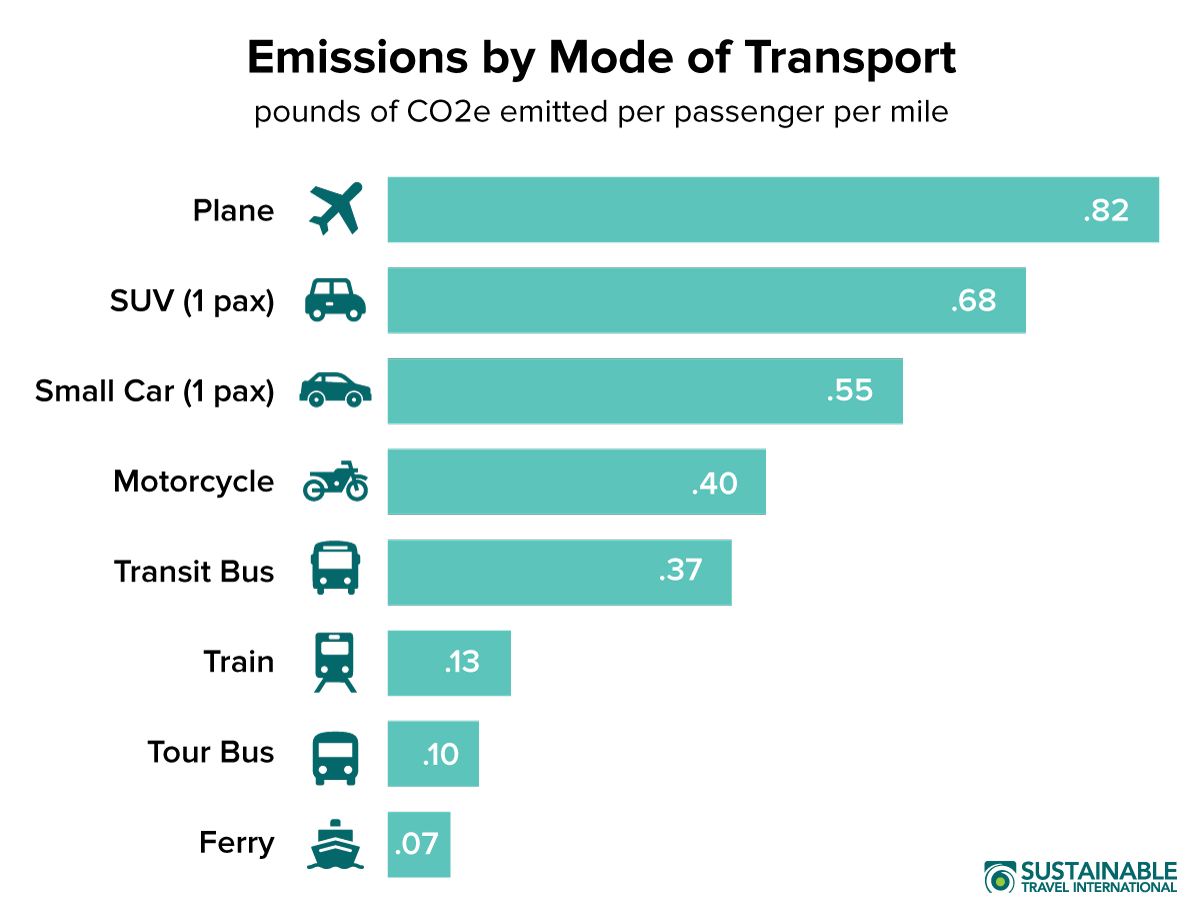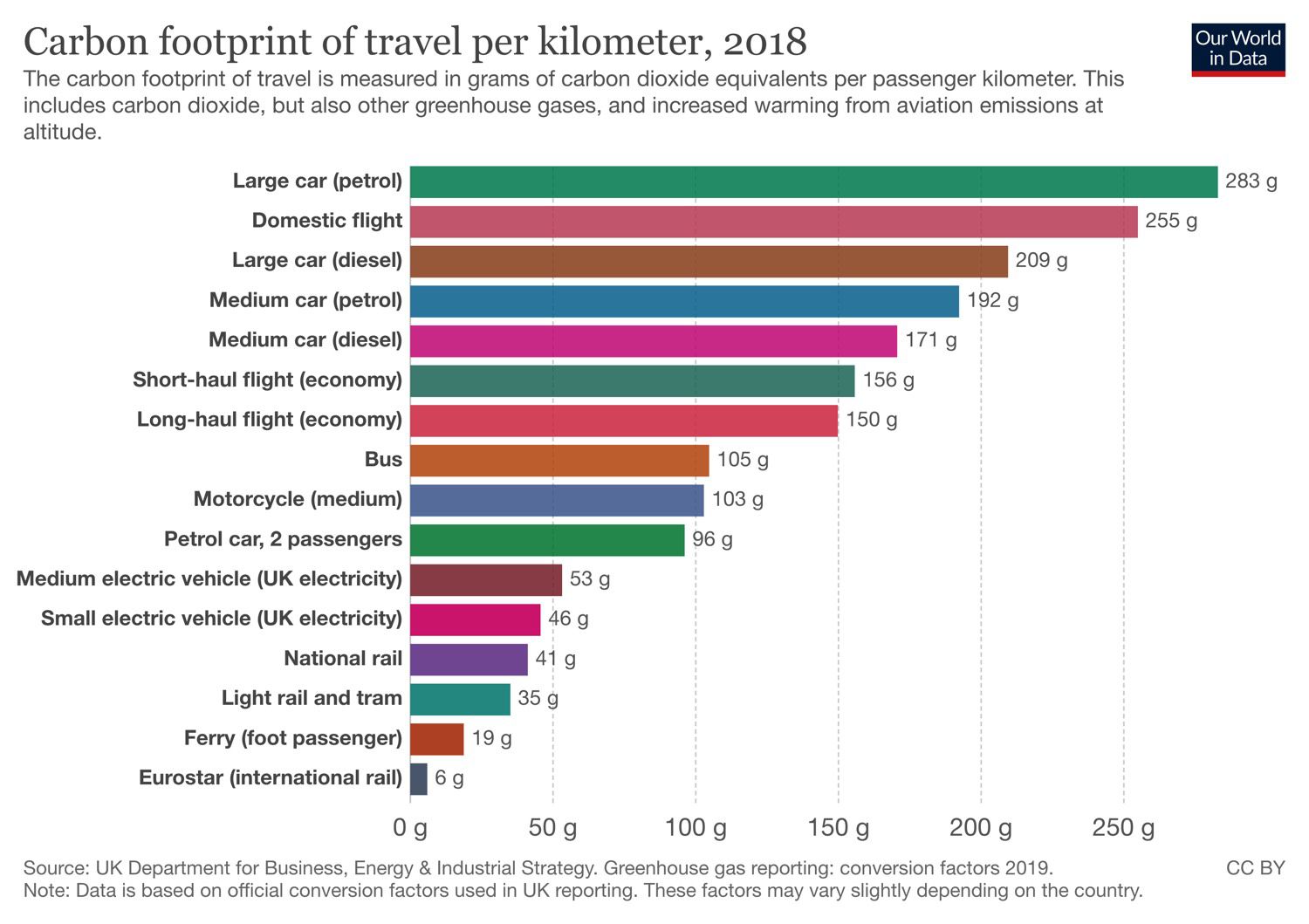I live in Vancouver, and the SeaBus ferry across the bay is incredibly successful. Crosses Vancouver Harbour between Downtown Vancouver and North Vancouver in less than 15 minutes with service frequencies less than 10 minutes apart, with really low boarding and deboarding times too. There are numerous other systems like it in the world, too. And according to this Infographic:

And this one:

It seems that ferries have really low carbon emissions per passenger per unit distance, beating out busses and even most regional trains, so I assume they’re really energy efficient in general.
So for costal cities or cities bisected by or bordering a river (which, most major cities fall into one or both categories) should we be investing in more ship based rapid and regional transport? I imagine it could be cheaper and faster to build from scratch than a brand new train line, since you only need to build out the docks and no track infrastructure since the water is already there. Imagine a rapid ferry zigzagging between the two coasts of a river, connecting the transit networks of either side without needing to use bridges (which are both expensive and tend to be choke points and bottlenecks for the transportation network). Or a bunch of ferries going up and down a row of coastal districts, or a star-shaped network across a bay or lake, when you would normally need to go around the perimeter?
Also, for systems like these that do exist, what are some well-running ones that could be used as examples? What about poorly running ones as examples of what not to do?
Artificial waterways are underrated for freight transportation: huge container ships are very efficient compared to trains/planes or trucks.
Semi-trailers in the USA have a weight limit of 40 tons. Typical US inland water barges carry 1500 tons.
Idk how waterways work when congested. Can ships change their speeds quikly?
deleted by creator
Ferries are an important mass transit method but they have a huge issue which is their speed. The seabus for example averages around 15km/h and while the speed would probably be a bit faster with longer route the cruising speed is only 21km/h.
For connections where there is not rail or road crossing nearby and the distance over water is not that great they can very useful.
